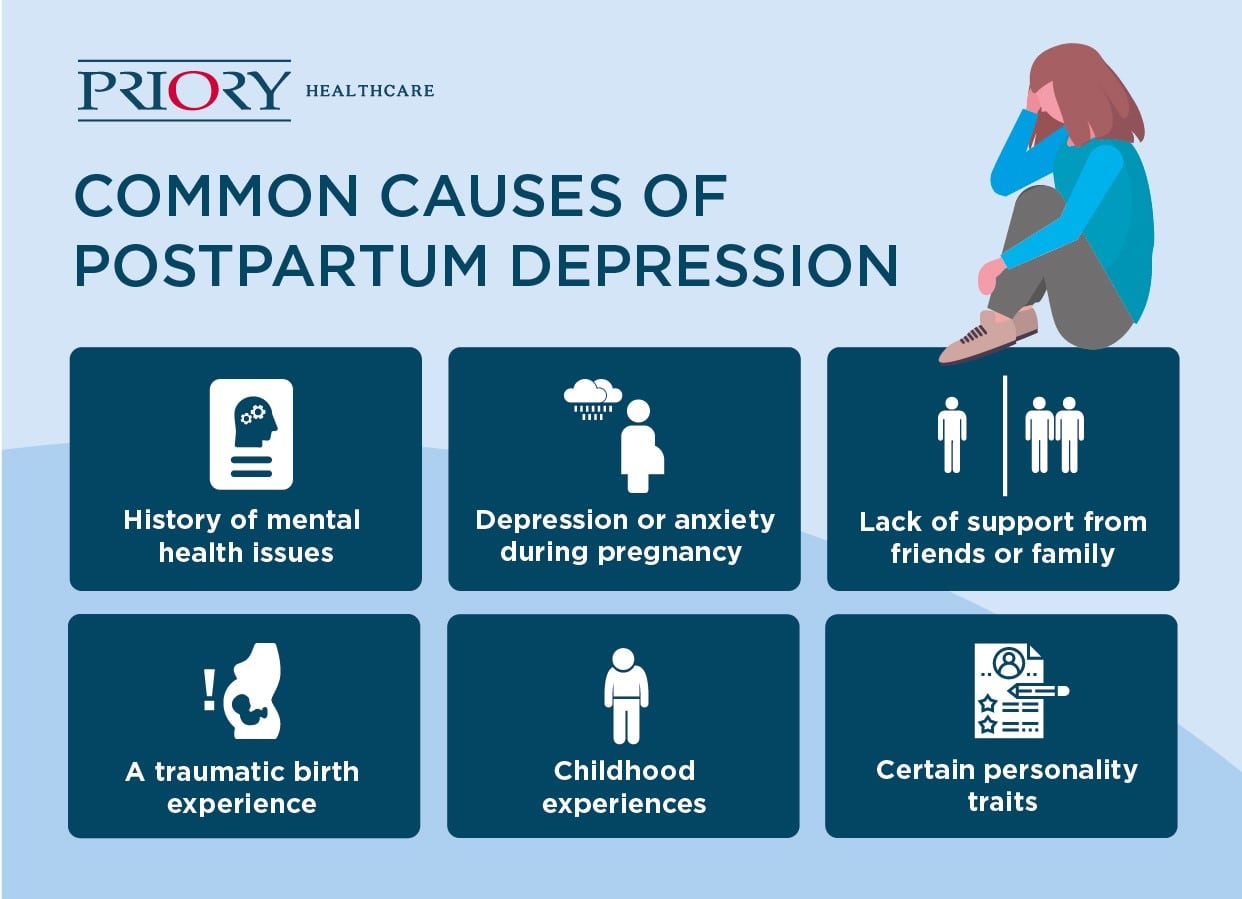Treatment for postnatal depression
Postnatal depression is treatable, and you don’t have to face it alone. With the right support, many people make a full recovery and go on to enjoy life with their baby.
When to seek help for postnatal depression
The early days of parenthood can be emotionally and physically overwhelming. But if these feelings last more than 2 weeks, aren’t improving or are getting worse, it could be a sign of postnatal depression.
What matters most is the pattern and impact of what you're experiencing. You might want to get help if:
- Your low mood has lasted for more than 2 weeks
- You feel increasingly disconnected from your baby
- Day-to-day tasks or self-care are becoming hard to manage
- You’re unable to sleep, even when your baby sleeps
- Feelings of guilt, hopelessness or failure are becoming more frequent
- You’ve had thoughts of harming yourself
You don’t have to wait until you reach crisis point. Speaking to your GP, midwife, health visitor or a mental health professional can be a powerful first step – they’re here to listen and help you feel like yourself again.
How postnatal depression is diagnosed
There’s no single test for postnatal depression. Instead, diagnosis is based on your symptoms, how long they’ve been going on, and how they’re affecting your day-to-day life and wellbeing.
Your GP, health visitor or therapist may use a screening tool called the Edinburgh Postnatal Depression Scale (EPDS) – a short questionnaire designed to help identify symptoms of depression. They may also ask questions about:
- Your mood and emotional wellbeing
- Changes in sleep, appetite or energy
- How you're feeling about your baby and parenting
- Any history of mental health difficulties
These conversations are handled with compassion and confidentiality. Health professionals understand how difficult it can be to open up and are trained to support you.
Treatment options for postnatal depression
Many people find that with the right support, they start to feel more like themselves again. The best treatment approach depends on the severity of your symptoms and your personal circumstances. Options may include:
- Self-help strategies and guided support – for mild symptoms, things like regular exercise, getting outside, relaxation techniques, and support from other parents or peer groups can be helpful early steps
- Talking therapies – psychological therapies like cognitive behavioural therapy (CBT) or interpersonal therapy (IPT) are commonly recommended for postnatal depression. These give you space to explore your thoughts and feelings and learn new ways of coping
- Medication – antidepressants (usually selective serotonin reuptake inhibitors (SSRIs)) may be prescribed for moderate to severe postnatal depression. Many are considered safe to take while breastfeeding, and your healthcare provider will talk you through your options
- A combination of treatments – a mix of therapy and medication is often the most effective route, particularly if your symptoms are more severe or have been present for a while
At Priory, we offer a range of evidence-based treatments for depression at any stage of the perinatal period, tailored to your individual needs. We have options ranging from intensive inpatient support to flexible outpatient treatment or online therapy sessions, so you can access the level of help that’s right for you.
We also offer a free self-care hub with guided exercises, relaxation techniques and expert-led videos – designed to support your mental wellbeing at home, whenever you need it.
The earlier you get support, the better the outcomes tend to be, both for your wellbeing and your baby’s. Taking that first step is a sign of strength, and it can lead to lasting recovery.




